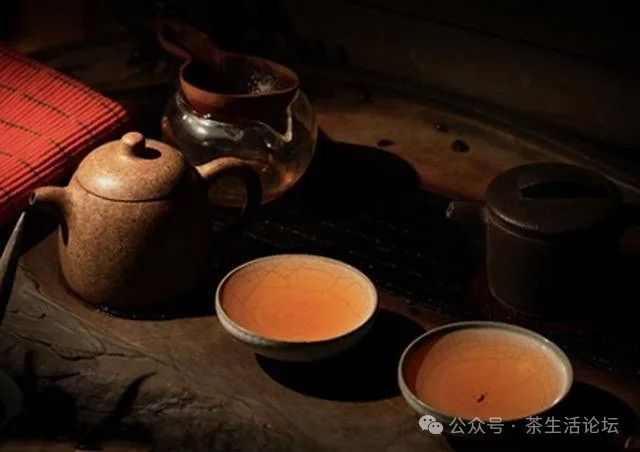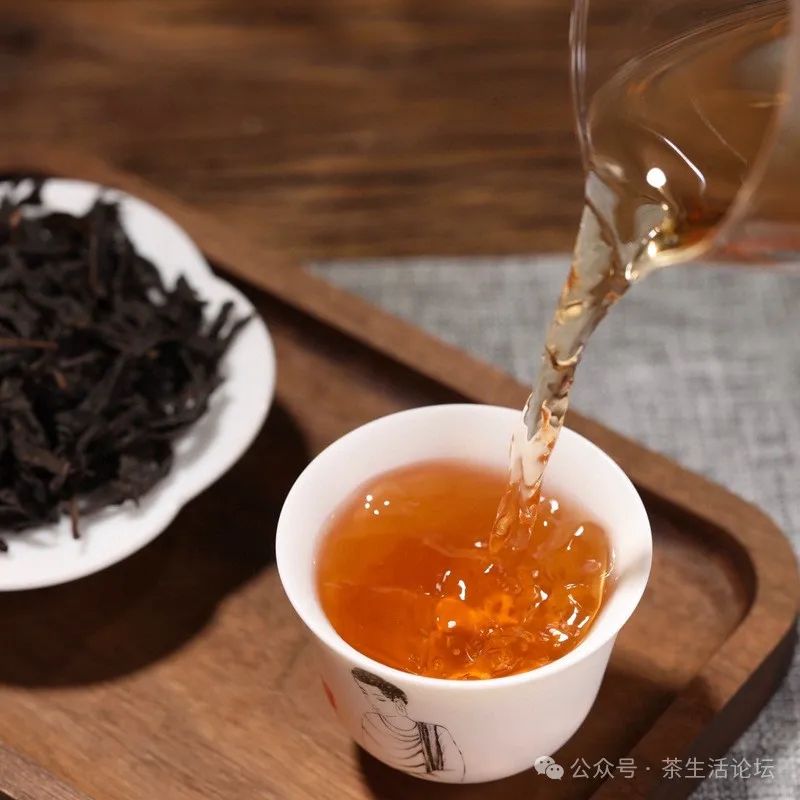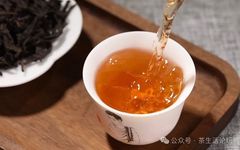
Cinnamon (肉桂, Ròuguì) belongs to the Wuyi rock tea (武夷岩茶, Wǔyí yánchá) category, specifically the Minbei Oolong tea (闽北乌龙, Mǐnběi wūlóng), primarily produced in Wuyishan City, Nanping, Fujian Province. It is made from the young leaves of the cinnamon variety tea tree and is currently one of the two main varieties of Wuyi rock tea, alongside Narcissus (水仙, Shuǐxiān). The tea’s aroma resembles that of cinnamon spice (桂皮, Guìpí), which is also used in cooking and traditional medicine, hence the name: Cinnamon.The rock tea cinnamon was discovered during the Qianlong period of the Qing Dynasty and has since been cultivated and widely planted for nearly two hundred years, becoming one of the flagship varieties of Wuyi rock tea. The cinnamon tea is made from the new leaves of the cinnamon variety tea tree, which are harvested in early May of the same year, using the production techniques of Wuyi rock tea (商品名:大红袍, Dàhóngpáo). The dry tea leaves are strip-shaped and brown in color, often possessing a rich floral aroma, with some exhibiting fruity or a blend of floral and fruity scents. When brewed with boiling water at 100 degrees Celsius, the tea can yield a soup that varies in color from earthy yellow to brownish-yellow or brown, with a strong floral fragrance, and sometimes a fruity or floral-fruity aroma. High-quality teas will transition from floral aroma to milky scent, and finally to orchid fragrance, culminating in a lingering scent reminiscent of a secluded valley until the tea is finished, leaving a long-lasting aftertaste; the tea flavor is rich, slightly astringent, with a sweet aftertaste, and a sensation of fullness in the throat, characteristic of the ‘rock bone’ feel unique to rock tea; the tea leaves are brownish-yellow, and high-quality ones have a soft, silky texture with lingering fragrance.Compared to other rock teas, the most notable feature of cinnamon is its intense tea aroma and the unique sharpness it brings to the tea soup, which tea masters refer to as ‘dominance’. The saying among tea connoisseurs, ‘Cinnamon is for aroma, Narcissus is for taste’, highlights the strong and sharp aroma of cinnamon.In the appreciation of Wuyi rock tea, the traditional saying among the locals is that the best cinnamon comes from Niulankeng, while the best Narcissus comes from Huiyuankeng. The Niulankeng cinnamon, regarded as the best based on the specific mountain area (山场, shānchǎng) where the tea is produced, has a tea soup that is round and long-lasting in aroma, often transitioning from cinnamon fragrance to milky scent and then to orchid fragrance; its flavor is rich and smooth, melting in the mouth, with a sensation of fullness in the throat. If we were to describe it using martial arts terminology, Niulankeng cinnamon could be likened to Tai Chi, being harmonious, thick, and soft, embodying dominance within its robust character. In contrast, the tea soup aroma of the Maotouyan cinnamon (currently abbreviated as ‘Mǎròu’) is very pronounced, with floral scents that are captivating, and the tea soup flavor is smoother, with a harder sensation of fullness in the throat; the bamboo cave cinnamon (currently humorously abbreviated as ‘Zhūròu’) has a more subtle and lingering aroma, with a more pronounced orchid fragrance in the aftertaste and cup bottom, and a smoother, more refreshing flavor, with a softer sensation of fullness in the throat. In summary, due to the geographical environment of the specific production area, climatic conditions at the time of harvest, the philosophy and techniques of the producer, and the brewing methods of the tea drinker, the color, aroma, and flavor of cinnamon can vary greatly, providing endless tea experiences for the drinker. However, the fundamental characteristic of cinnamon must always be its ‘dominance’.It is precisely because of the ‘dominance’ of cinnamon that sharing it with tea friends always evokes a sense of grandeur. The line from Tan Sitong, one of the six gentlemen who sacrificed themselves for the reform of the weak nation during the Wuxu Reform, ‘I laugh with my sword facing the sky’ often comes to mind. That spirit of self-sacrifice for the country and the people is true grandeur and ambition, worthy of admiration for generations!Tea saying: I laugh with my sword facing the sky.

This article has been included in the book ‘Tea Knowledge’ published by Zhejiang Gongshang University Press. Images are sourced from the internet.
Scan to follow our public account

*If you are interested in tea life, you are welcome to submit articles.
Total Issue 508
Please submit articles to the forum email:

